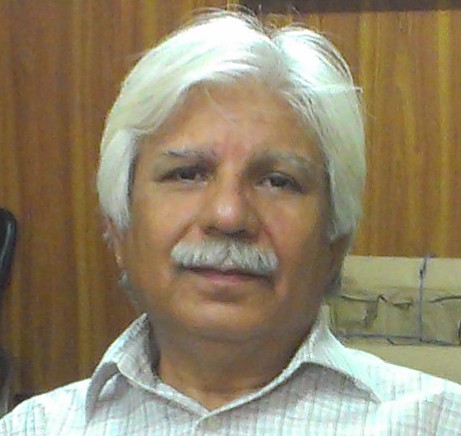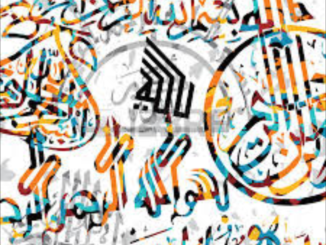
Sheeraz Khan Dasti interviews Muhammad Moiz, the man behind Pakistan’s relationship guru and social media “desi bombshell” fame character, Shumaila Bhatti
With a leader like Benazir Bhutto, a Nobel Prize winner like Malala Yousafzai and an Academy Award winner like Sharmeen Obaid Chinoy, Pakistan is a country that boasts brilliant daughters!
In hundreds of governmental and non-governmental organizations (in her 2004 PhD thesis, Najma Farman lists 101 NGOs working for women’s rights issues in Pakistan) work thousands of unsung, yet brave, female heroes. To raise awareness among women, to strive for a society that is safe for them and to work for women’s empowerment, their websites are assertive! While the active presence of these organizations, their workers and volunteers in such large numbers is indicative of the enormity of the issue, “initiatives taken at the public and private level to address the issue”, according to a Human Rights Commission of Pakistan’s (HRCP) Annual Report in 2015, “did not yield any meaningful impact”. The report identifies a “lack of consistency” as the main reason for this failure. In fact, it is not a lack of consistency that fails them, it is their unrealistic frameworks. Undeniably, most of these organizations employ a Western approach, construct patriarchy as a monster, aim at defeating it overnight and wage war against well-rooted traditions. As a result, instead of having any meaningful impact, their provocative approaches end up prompting a negative reaction.
The recent boom in higher education that has accelerated the pace of academic activity in the country is also seen as a ray of hope for women. Amidst the remarkable growth in the production of academic discourse, the blue-eyed brand of Western humanities, known as ‘feminism’, is being brilliantly repackaged and sold by desi humanities. However, from ‘asexuality’ to ‘womyn’, and ‘male gaze’ to ‘misogyny’, its jargon seems to be stuck in seminars. Again, built on Western or West-inspired frameworks, little of this convoluted feminist discourse seems translatable into practice.
Hence, while the equality paradigm of firebrand activists is at odds with our culture, the indigenousness of knowledgeable feminist academics is lost in texts, terminology and translations.
However, this was the case until we had Shumaila Bhatti (Sweeping statement? No!), the newly sworn-in hard-core women’s rights champion of Pakistan. A careful reading of Shumaila Bhatti’s ‘stories’ and their morals shows that it is the syncretism of tradition and modernity (not the forceful pulling of impoverished women away from their roots) that convinces us all of Shumaila Bhatti’s wisdom way more than the serious minded activists and academics listed above.
And no doubt, it is primarily Moiz’s hilarious script and masterful development of the character of Shumaila Bhatti that has won him unparalleled popular acclaim. As an academic, what I am interested in is subject matter, and Moiz’s impressive knowledge of and deep-rooted interest in it. Therefore, my questions for him, as you would see, are more academic /critical in nature, and so are Moiz’s answers. Let’s hear the brilliance!
Sheeraz: Apparently you are the writer, director, cameraman and performer of this one-man-show, the Desi Bombshell. Please correct me if I am wrong. Do you read or watch any particular material to be inspired or to manage your influences before making a video?

Muhammed Moiz, the brain behind fictional social media character Shumaila Bhatti
Moiz: You are right, it’s totally a one-man show so far.
As for influences, I don’t read or watch any material to make them. It’s all drawn from my informal sense of humour. I don’t think I need to read or watch something for this work. At the same time, I do not rule out the possibility of subliminal influences. To some of her fans, Shumaila might sound like Ms Rozi’s character, immortally played by the great Moin Akhter, which I happened to watch; and as a childhood memory, my parody of hers still lives on. In fact, I have always been caricaturing different characters, which might have helped me to conceive and develop the character of Shumaila Bhatti.
Sheeraz: In your work, one can easily see some great lessons on worldly wisdom for young women. Is relationship education one of the primary purposes for you?
Moiz: Definitely, yes! My interest in global anthropology enables me to see how globalization is changing gender dynamics in our society; how opportunities for young men and women are shifting gender roles; and how they are being perceived and practised by, in particular, the middle class in Pakistan of Shumaila’s age, as well as their parents and patriarchs. What I see most clearly is confusion! Also, some people have very strong personal boundaries, while for others they are completely absent. In collision as well as in an embrace with modernity, our traditional chadar-and-chaardeevari and saas-bahu narratives have landed us in a postmodernistic chaos. The way our older generation reacted in their relationships, and the models of relationships they employed, are not just failing today, they are irrelevant. At this point, knowing how to react is important, and that is what Shumaila, an ordinary but articulate woman, is trying to do: trying to learn how to react to today’s complicated situation.
Sheeraz: My discussions with Shumaila Bhatti’s fans show that your videos are having a remarkable impact on the traditional mindset of our society. In challenging several stereotypes about girls, and issuing some warnings to them, they are more persuasive than the discourses of Pakistan’s feminist academics and activists. Do you read feministic literature? Do you follow any women’s rights activists from Pakistan? Could you mention any films or documentaries on women rights or girls’ education that you have watched? Anything that might have shaped Shumaila’s opinions?
Moiz: I am a feminist! I respect and follow the efforts of most of the feminists working in our country. Having said that, Shumaila is NOT at all a feminist. If you ask her this question, “to bolay gi mujhay to pata nahi hae ke feminism kia hoti hae”, she would wonder what feminism is. So her opinions are hers! She is not a reformer, she’s a problem. A young woman with a colossal fear of loneliness, but at the same time trying to deal with it, not knowing what she is doing but still trying to make sense of it. She doesn’t give you theories, she just narrates her reality and her life! That is where I have to intervene and make her say certain things implicitly. That is where I push her towards a middle way, towards moderation.
Sheeraz: You are targeting college-going, Urdish-speaking middle-class girls as your audience, a class and age group the great Shumaila Bhatti herself belongs to. Is there any particular reason for this choice?
Moiz: Demographics! One, it is indeed the major class in our country. Two, most of the sociocultural problems relate to this too-paindu-for-the-burgers-and-too-burgers-for-the-paindu class. Three, all the elitist academic discourses (Marxism, feminism, etc.) on socio-economic issues primarily work in binary terms, either comparing the upper and lower classes or aiming to change the fate of lower-class individuals. So what makes me go for the middle classes is their relatively low representation so far.
Sheeraz: Do you think Pakistani girls of Shumaila Bhatti’s age group need formal lessons in relationship management?
Moiz: I don’t think so. Education has to be based on models. Relationship management is a very personal affair, and so modeling it and applying it to everyone is almost impossible. What we need to teach Shumaila and her age group is empathy, and that should surface as a side outcome of our formal education. This will only be possible when we break down certain stereotypes surrounding gender. Syllabi with lessons on men doing all the outdoor chores and women doing only domestic chores, men playing superheroes on national and historical fronts and women playing fairies only adds to the confusion I have already mentioned. So, our formal education should be focused on challenging the reasons that lead to this confusion and building a more realistic mindset that is congruent with our modern times and lived reality.
Watch Shumaila’s story on late night texts, here:
Episode 17:Shumaila on late night texts, boys that don't quit, and the secret meaning of "mashallah"…#desibombshell #shumailabhatti #shumaila
Posted by Desi Bombshell on Tuesday, November 15, 2016
Sheeraz: What lessons can Pakistani girls learn from American girls? What lessons can American girls learn from Pakistani girls?
Moiz: They are two very different identities. I know there is an answer to this question but I don’t yet know what exactly it is because I have no in-depth knowledge of American culture. However, what I’m certain about is that both these identities face problems, and these have multiplied as societies have waved through different movements and are now in an identity flux, which also impacts on their politics.
Sheeraz: Are there any future plans that you would like to announce through this interview?
Moiz: Yes. I have a plan and I would love to announce it now. I plan to diversify the platform of Desi Bombshell. I still believe that entertainment should always be the focus but, alongside this, I want to extend the canvas of this social commentary. I’m aware of the great potential that we have for comedy in our country. So, I’m looking for collaborations. I know my limitations and that one person cannot do everything. To mention one such collaboration, we have already begun collaborating with Laari Ada. In fact, Shumaila received a proposal from the guy at Laari Ada, and politely responded to this wonderful rishta. And it all has happened as a creative collaboration. And building on that, I’d like to work more with upcoming artists so that, instead of being competitors, we can mutually revitalize Pakistan’s entertainment industry. And give it a much needed “online” boost.
Sheeraz Moiz, thank you so much for your time!
Moiz: You’re very welcome, Sheeraz!
Watch Shumaila’s response to Bholla’s love proposal, here:
"The Shumaila and Bholla special series"Part 1: Shumaila responds to Bholla's love proposal – Laari Adda#desibombshell #laariadda #shumailabhatti #shumailaandbhollaThe YouTube upload can be seen at:https://www.youtube.com/watch?v=xpzO67iiMcQ
Posted by Desi Bombshell on Saturday, November 26, 2016




